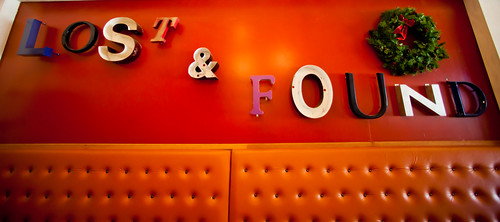Here is a tale from my personal experience that illustrates both the peril and promise of keeping digital information over time.
Starting in 1996 I put out a weekly e-mail newsletter called Culture in Cyberspace. I used it to report on websites that I found interesting and also offered thoughts about the impact of information technology on society. It was a small effort that had a mailing list of about 3,000 people when I shut it down in 1997. I was starting a new day job, and wanted to fully invest myself there; in retrospect, I wish I had stuck with CinC, but that’s another story.
Anyway, this before the advent of blogs and there were comparatively few people using the internet to publish thoughts about the medium. As a result, some of what I said got some modest attention. I was interviewed for a story in Ms. Magazine about Cyber-Rape. I made my way on to university class reading lists, including this one. I was footnoted in a academic article, Scholarly Communication and Electronic Publication: Implications for Research, Advancement, and Promotion. My observations apparently made it into the pricey journal Convergence: The International Journal of Research into New Media Technologies–at least Google claims I did; I’m not willing to pay $25 to the publisher to access the article for conformation. Now, it may seem self-aggrandizing to draw attention to these small events from so long ago. And while I confess to some lingering pride, my main point is that despite the obscurity and the age of my words, Google can still find many of them.
This is a good thing, because I lost about half of the original files. I had them backed up on my laptop hard drive and on multiple sets of floppy disks, but must confess to falling short of proper personal archive management. When I got a new laptop I neglected to copy the files before selling the old laptop on eBay. I kept the backups with a large collection of floppy disks that I all but forgot about in the transition over to recordable CD-ROMs and flash drives. When I eventually tried to access the disks 10 years later, they had errors and I could only retrieve some of the content. I turned to Google as a last resort and was frankly amazed at how much still existed in the ether.
This is obviously not an ideal archival arrangement. There is, for example, no assurance that the words purported to be mine are 100 percent authentic or are presented in what I would consider the right context. The bigger issue is fragmentation: the Google CinC corpus is patchy in the extreme, presenting a range of information from brief mentions to, to excerpts, to complete issues. It is a bit like trying to make sense of an ancient cuneiform library that has been smashed and scattered. Still, for me in this case, it is far better to have the pieces than nothing.
Is this how future researchers will experience our world? Perhaps. We crank out gigantic quantities of digital documentation about every possible topic, often with no solid plan for how to preserve it. The vastly distributed nature of the internet ensures that pieces of our collective output persist, and powerful search technology is adept at zeroing in on the tiniest fragments. This is like randomly grabbing chunks of information, throwing it in a digital Cuisinart and hitting “liquefy.” At what point does the original structure and meaning of the information break down and combine into something different?
Maybe this is the wrong question, however. One might ask instead: how much will anyone care in the future about hazy issues relating to authenticity, context and original intent? One of the old rescued CinC articles recorded my thoughts on this very subject in connection with the then-recent book, Life on the Screen by Sherry Turkle.
Turkle is, to my mind, without peer in her ability to probe how computers are changing us. In Life on the Screen, she lucidly explained how information technology is facilitating a shift from respect for rational, systematic thought to an embrace of personal experience by the ability people have via the web to explore, rearrange, and reinterpret information. We are becoming much more willing to accept and endorse subjective experience than to filter perception through ideas about what is “right” or “wrong.” Turkle’s new book, Alone Together, explores these ideas further, and I look forward to reviewing it in a future post.
My experience with losing data, and then finding some of it on the internet, gives rise to a host of thoughts. If I wanted to be totally pretentious I could say that it revealed the boundary between the Modern and the Postmodern (even though I can’t say I precisely know what those terms mean). But most of all, I am left wishing that I had just done a better job preserving my digital files.






















